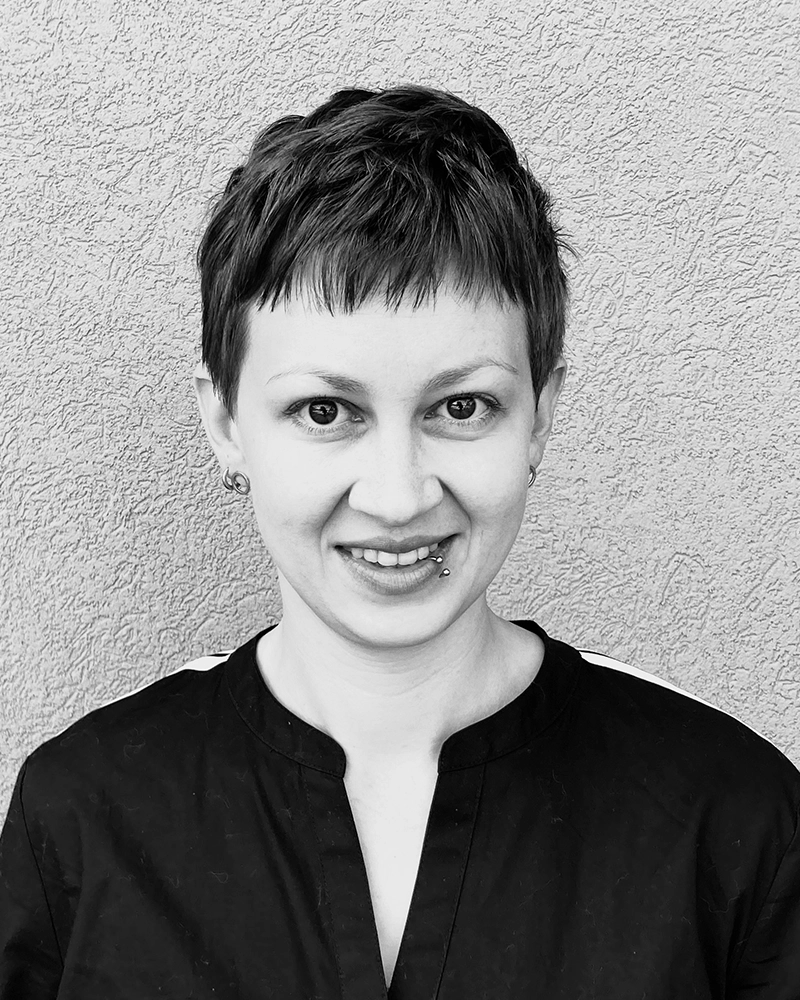
Dr. Katrin Antweiler
Remembrance as a Social Norm? Paradoxes of Collective Memory in a Postmigrant Society
The “promise of plural democracy”, as it is derived from the lessons of National Socialism, continuously produces new contradictions because the norm of equality for all that is enshrined in the German Basic Law, and the exclusion and disintegration experienced by many people, often do not coincide. Taking this dissonance as a starting point, my project – a multi-sited ethnography – examines civil society initiatives that have been offering educational programs on the Holocaust to people who have fled to Germany since 2015. Based on the assumption that Holocaust remembrance can both convey values of German society and, at the same time, exclude people from the “national culture”, I research current forms and functions of Holocaust education programs for refugees in order to better understand how paradoxes of plural democracy are negotiated on the basis of these mnemonic practices.
Research Interests
- Memory Studies, especially Holocaust memory, memory of genocide, and multidirectional memory and global(ized) historical narratives, museum studies
- Contradiction Studies, primarily paradoxical cultural practices and cultural practices that aim at harmonizing supposed contradictions, e.g., through citizenship education
- Global Governmentality, especially with regards to decolonial and postcolonial critique, international relations and politics, security and securitization
Vita
- 2022
PhD from Justus-Liebig-University Giessen
Project Name: Memorialising the Holocaust in Human Rights Museums. A Comparative Analysis of Memory as a Means of Government - 2017–2022
Full PhD Scholarship from the International Graduate Center for the Study of Culture (GCSC) - 2021
Junior Fellowship at the Center for Holocaust Studies at the Institute for Contemporary History, Munich - 2018–2022
Co-Speaker of the GCSC’s Research Area 1: Cultural Memory Studies - 2019
DAAD doctoral research scholarship - 2016–2017
Research Track Stipend from Humboldt Graduate School - 2013–2016
M. A. Cultural Studies, Humboldt-University Berlin - 2009–2013
B. A. Cultural Research and Gender Studies, University of Bremen - Since 2007
Member of the Memory Studies Association and its working group Critical Thinking on Memory and Human Rights
Publications
- Antweiler, Katrin. 2025. Wider die Gewissheit, es lebe der Zweifel!. In Patrick McLean & Jeroen van Norden (eds.), Geschichte als Kritik, 360–380. Frankfurt am Main: Wochenschau Verlag. DOI
- Antweiler, Katrin. 2024. Memory as Means of Governmentality. Memory Studies 17(2). 137–154. DOI
- Antweiler, Katrin & Rebecca Jung. 2024. Paradoxien des Ein- und Ausschlusses. Bildung zu Nationalsozialismus und Holocaust in Integrationskursen. Aptum. Zeitschrift für Sprachkritik und Sprachkultur 20(1). 69–92. DOI
- Antweiler, Katrin. 2023. Memorialising the Holocaust in Human Rights Museums. Berlin & Boston: De Gruyter. DOI
- Antweiler, Katrin. 2023. Memory as a Means of Governmentality. Memory Studies 17(2). 137–154. DOI
- Antweiler, Katrin. 2023. Why Collective Memory can Never be Pluriversal: A Case for Contradiction and Abolitionist Thinking in Memory Studies. Memory Studies 16(6).1529–1545. DOI
- Antweiler, Katrin. 2023. Efforts in Futurity beyond Reconciliation [Review on: „Visualizing Genocide. Indigenous Interventions in Art, Archives, and Museums“ (ed. by Yve Chavez & Nancy Marie Mithlo). International Affairs 99(6). 2522–2523. DOI
- Antweiler, Katrin. 2023. Gefühlsabfrage am Smartphone. Wie eine Museumsapp den Link zwischen Holocaust und Menschenrechten herstellt. In Arbeitskreis QGM (ed.), Quellen zur Geschichte der Menschenrechte. Link
- Antweiler, Katrin. 2022. Unvereinbarkeit oder Dialog der Erinnerungsdiskurse. Review on: „Fluchtpunkte der Erinnerung. Über Gegenwart von Holocaust und Kolonialismus“ (ed. by Natan Sznaider). Einsicht. Bulletin des Fritz Bauer Instituts. 127. Link
- Antweiler, Katrin. 2022. The Coloniality of Holocaust Memorialization in Post-Apartheid South Africa. International Affairs 98(1). 263–280. DOI
- Antweiler, Katrin. 2020. Prescribed Anti-Racism? Historic and Contemporary Challenges to a Global Memory Imperative. Review on: „Holocaust Memory and Racism in the Postwar World“ (ed. by Shirli Gilber & Avril Alba). KULT_online 61. DOI
- Antweiler, Katrin. 2019. Unlearning Prejudice Through Memory? Contemporary German Memory Politics and Human Rights Education. AUC Studia Territorialia 19(2). 55–79. DOI
- Antweiler, Katrin. 2019. At the Limits of Transformation? Human Rights Education Between Colonial Conditions and Emancipatory Counter-Projects. Review on: Critical Human Rights, Citizenship and Democracy Education, Entanglements and Regenerations (ed. by. Michalinos Zembylas & André Keet) KULT_online 57. DOI
Talks, Workshops and Events
- 09. – 10.09.2024
Organisation of the Junior Fellow Workshop of the KFG Taking Stock of the Holocaust – Human Rights Nexus: Historical and Contemporary Perspectives with Ida Richter, LMU München - 29.11.2023
Talk Wenn Erinnerungspolitik zur Zukunftspolitik wird at the Colloquium of the Centre for Research on Antisemitism, TU Berlin - 06.11.2023
Panel Discussion Widersprüche der Erinnerungskultur. Die Realität der postmigrantischen Gesellschaft anerkennen? with Dr. Max Czollek, Ksenja Holzmann and Klaas Anders, Weserburg Bremen - 04.07.2023
Talk Of Paradoxes and Pitfalls, or: Does the Post-Migrant Society Need a Collective Memory? with Rosa Jung at the Memory Studies Association 7th annual Conference, Newcastle University - 25.04.2023
Book Presentation Memorialising the Holocaust in Human Rights Museums with Prof. Esra Özyürek and Prof. Magdalena Zolkos, University of Bremen - 05. – 09.07.2021
Paneldiscussions at the yearly Conference Memory Studies Association, University of Warsaw, Poland - 08.12.2020
Organization and Implementation of the International Conference Memories for the Future? Narrating Horizons of Hope in Contemporary Politics out of History with Zoran Vuckovac, Justus-Liebig-University Giessen